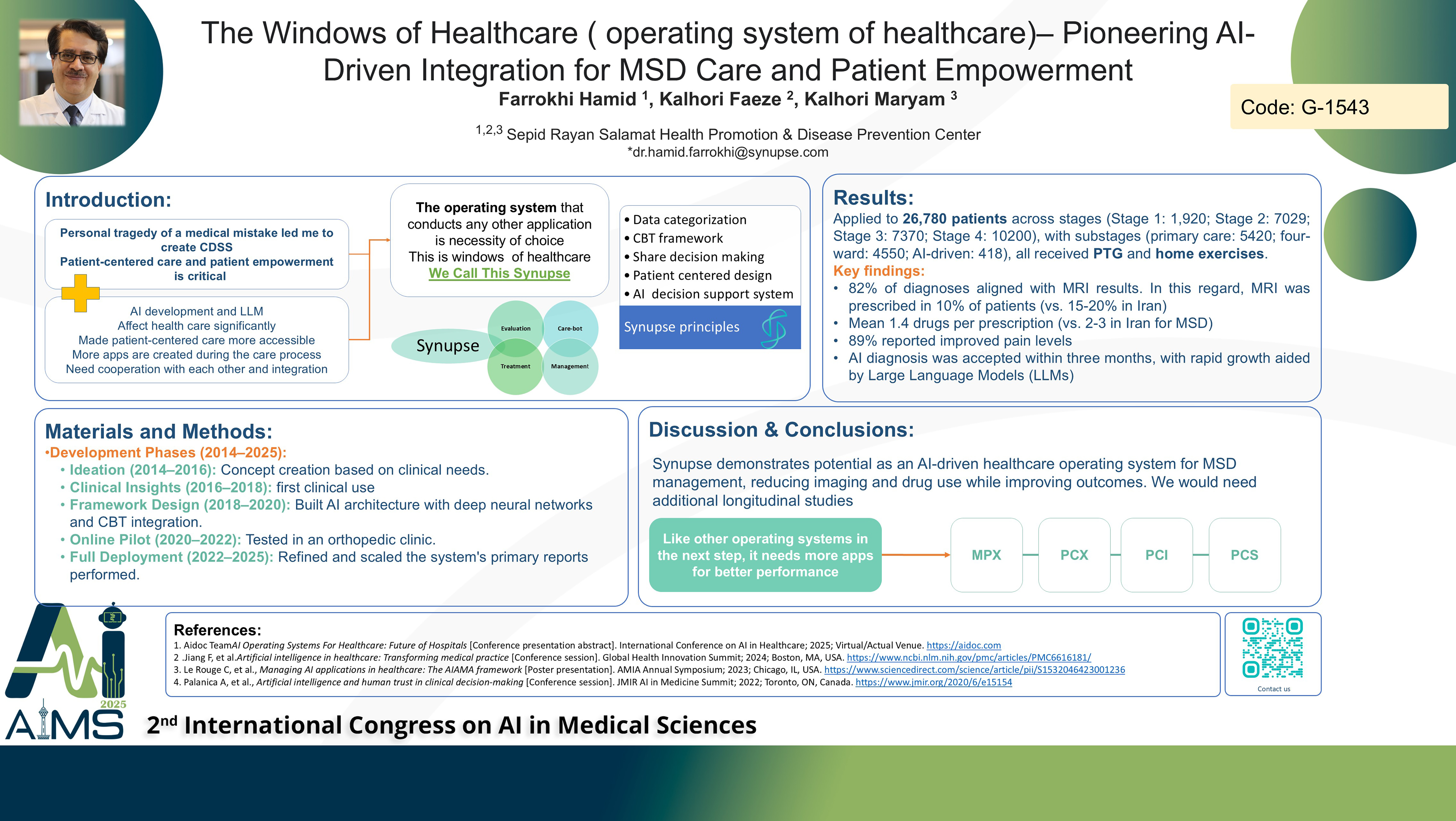Synupse: The Windows of Healthcare ( operating system of healthcare)– Pioneering AI-Driven Integration for MSD Care and Patient Empowerment
Code: G-1543
Authors: Farrokhi Hamid * ℗, Kalhori Faeze, Kalhori Maryam
Schedule: Not Scheduled!
Tag: Clinical Decision Support System
Download: Download Poster
Abstract:
Abstract
Background: Motivated by a personal tragedy involving a medical error with severe consequences, Synupse was developed to transform musculoskeletal disorder (MSD) care. By integrating cutting-edge artificial intelligence (AI) with patient-centered principles, it aims to enhance diagnostic precision and treatment outcomes, addressing the global burden of MSDs on healthcare systems. Method: Synupse’s development spanned 2014 to 2023, progressing through ideation, clinical insights (2014-2017), framework design (2017-2020), an online pilot (2020-2021), and full deployment in 2023. It integrates deep neural networks for data processing, Cognitive Behavioral Therapy (CBT) for psychological support, and patient-centered care to prioritize individual needs. Core Features: The system rests on five pillars: accurate patient data categorization, a CBT-informed care framework, shared decision-making, patient-centered design, and AI-powered decision support tools. Clinical Application: Synupse operates via four wards: Carebot for efficient symptom triaging using a tri-fast checklist and sonex) US+ exam) with 6 types of care( including 3 stages team work. online . occupational therapist chat based) .Evaluation for building detailed patient profiles through biomechanical and psychosocial assessments; Treatment for delivering CBT-driven interventions, including exercises, injections, surgeries, and a six-week program of education, occupational therapy, and home exercises; and Management for coordinating ongoing care. For security we use GPT4ALL as asecure local LLM Results: Applied to 26,780 patients across stages (Stage 1: 1,920; Stage 2: 7029; Stage 3: 7370; Stage 4: 10200), with substages (primary care: 5420; four-ward: 4550; AI-driven: 418), all received PTG and home exercises. Key findings: 82% of diagnoses aligned with MRI results, that is good overall we prescribe MRI in 10% of patients that compare to 15 -20% overall in iran synupse is better ; treatment started with mean 1.4 drugs per prescription that is lower than average in iran( 2-3 for MSD) and home exercises; 89% reported improved pain levels; AI diagnosis was accepted within three months, with rapid growth aided by Large Language Models (LLMs) Conclusion: Synupse demonstrates potential as an AI-driven healthcare operating system for MSD management, reducing imaging and drug use while improving outcomes. I would need additional longitudinal studies.
Keywords
Artificial-Intelligence, Patient-Centered-Care' healthcare system' Musculoskeletal Disorder
